
Moroccan Freemasonic Rooted Jean-Luc Mélenchon [FAKE LEFT]

Algerian Freemasonic Rooted and Traitor Éric Zemmour [FAKE RIGHT]
La Laïcité et le messianisme républicain - Conférence de Youssef Hindi
Youssef Hindi
This article is more than 3 months old
Hard-left presidential candidate and far-right pundit meet in French TV ‘cockfight’
Jean-Luc Mélenchon and Éric Zemmour slug it out in much-publicised two-hour debate

Two men; two completely different visions for France.
In a debate that lasted more than two hours, the hard-left presidential candidate Jean-Luc Mélenchon and the hard-right Éric Zemmour, expected to be a presidential candidate, went head to head on prime-time television on Thursday evening.
The much-publicised clash featured mentions of gulags, Mao, Stalin, pizzas and couscous in a verbal slugging match that Mélenchon had said he hoped would not be “a cockfight”. In the end, it was.
Mélenchon, the leader of La France Insoumise (Unbowed France) vaunted the merits of what he called “créolisation”, which he described as the idea in which “human beings come together and create something in common”.
Zemmour, a political essayist, writer and TV pundit, hammered home his trademark themes: immigration, opposition to Islam, the ethno-nationalist Great Replacement Theory and a plan to ban “non-French” given names.
Islam is “incompatible” with the Republic’s motto “liberty, equality, fraternity”, Zemmour said. The French “feel colonised … and have an existential fear of disappearing”. Lawlessness in the country was “a jihad … a war being waged against us, a war of civilisations, a war of looting, a war of theft, a war of rape and a war of murder,” the political writer added.
Mélenchon accused Zemmour of having a “stunted vision of France” and being “a danger for our country”. “There are many of us and we will not let you drive out Muslims, Monsieur Zemmour,” he said. “You are a racist and you’ve been convicted as such.”
“Aren’t you ashamed?” he asked.
“No, not all,” Zemmour replied.
Zemmour said he would limit social security benefits, Mélenchon said he would increase them “including for foreign families” and raise the minimum wage for good measure.
Mélenchon said he was more interested in the environment and climate crisis and would drop nuclear power. “Life has taught me that it is dangerous,” he said. Zemmour responded that France’s nuclear production that supplies 75% of electricity in the country was to be praised. “He wants to save the planet, I just want to save France,” he said.
And so it continued. One of the rare subjects both agreed on was that France should pull out of Nato. That, and the fact they were not going to be called to order by the television journalists trying to keep the debate on track. The televised confrontation was a hit for BFMTV, which recorded 3.8 million viewers for the live programme.
The Morocco-born Mélenchon, who ran in the 2012 presidential election and again in 2017 when he came a respectable fourth in the first round against a field of 11 candidates, has already announced he will be standing again next April.
Zemmour, born in France to a Jewish-Algerian family of French nationality that came to France during the Algerian war, has yet to officially declare his candidature, but supporters have already started canvassing the country’s mayors for the 500 signatures necessary to stand. If he does, he will be trawling in the same pool of voters as the far-right Rassemblement National candidate, Marine Le Pen.
Opinion polls suggest neither man will be collecting the keys to the Élysée Palace next spring. Currently, the most predicted outcome is a Macron-Le Pen second-round runoff as in 2017. Still, seven months is an eternity in French politics.
As 2022 begins, there’s a new year resolution we’d like you to consider. We’d like to invite you to join more than 1.5 million people in 180 countries who have taken the step to support us financially – keeping us open to all, and fiercely independent.
In 2021, this support sustained investigative work into offshore wealth, spyware, sexual harassment, labour abuse, environmental plunder, crony coronavirus contracts, and Big Tech. It enabled diligent, fact-checked, authoritative journalism to thrive in an era of falsehood, sensation, hype and breathtaking misinformation and misconception.
In 2022, we’ll be no less active, with a cluster of elections (France, Brazil, the US to say the least), economic pinch points, the next phase of the pandemic, the gathering climate emergency and the first ‘winter World Cup’ to keep us busy.
With no shareholders or billionaire owner, we can set our own agenda and provide trustworthy journalism that’s free from commercial and political influence, offering a counterweight to the spread of misinformation. When it’s never mattered more, we can investigate and challenge without fear or favour.
Unlike many others, Guardian journalism is available for everyone to read, regardless of what they can afford to pay. We do this because we believe in information equality. While others commoditise information, we seek to democratise it. Greater numbers of people can keep track of global events, understand their impact, and become inspired to take meaningful action.
If there were ever a time to join us, it is now. Every contribution, however big or small, powers our journalism and sustains our future.
Support the Guardian from as little as £1 – it only takes a minute. If you can, please consider supporting us with a regular amount each month. Thank you.
Support the Guardian
The Guardian view on the French left: dangerously divided and dysfunctional
Disillusionment among French progressives could open the door to a Marine Le Pen presidency

It was less than 10 years ago that France last elected a Socialist party president, but it now seems like another age. The unpopular reign of François Hollande, who stood down after one term, was the precursor to an electoral implosion for the party of Jean Jaurès and François Mitterrand. In 2017, as Emmanuel Macron successfully redrew the political map from the centre, the Socialist presidential candidate received a humiliating 6% of the first-round vote. In the subsequent general election, the party’s presence in the National Assembly was reduced to a miserable rump of 30 MPs.
“Things can only get better”, to use a phrase from happier times on the European left. But for French progressives, the danger is that they get even worse. A year out from the next presidential election, every opinion poll points towards another second-round duel between President Macron and Marine Le Pen. Accordingly, last weekend, the fractious forces of the left met to try to agree on a united front. But after inconclusive talks it seems likely that the progressive vote will be split between at least two presidential candidates: Jean-Luc Mélenchon of the radical left party La France Insoumise (France Unbowed), and whoever the Socialist party and the French Greens put forward. A first-round defeat for all concerned would be virtually guaranteed.
The chronically split French left offers a cautionary tale for progressive movements elsewhere, showcasing some of the tensions that have become endemic. Mr Mélenchon’s party is Eurosceptic and has its strongholds in the post-industrial regions, attracting blue-collar workers and the young. The pro-European Socialists and Greens have a more middle-class base, dominating the politics of Paris and other cities. The only realistic shot at the Élysée would be through a progressive alliance, backing one candidate. Mr Mélenchon gained almost 20% of the vote four years ago, but a taste for conspiracy theories and intemperate rants appears to have cost him almost half that support since, and the hostility to Brussels puts him beyond the pale for the centre-left. From his perspective, there is little incentive to tarnish the anti-establishment brand of La France Insoumise by standing down in favour of, say, Anne Hidalgo, the mayor of Paris and likely standard bearer for the Socialists.
This dysfunctional situation has potentially serious implications. Already the signs are that Ms Le Pen is set to do much better than in 2017, when she lost heavily to Mr Macron. On the two previous occasions that the far right contested the second round of presidential elections, a united “republican front” of voters saw off the threat. But Mr Macron’s liberalising economic measures, and hard line on immigration and law order issues, have made him deeply unpopular on parts of the left. There are fears that a sense of disenfranchisement and antipathy towards the president could lead to a high second-round abstention rate, opening the door to a Le Pen presidency. The good health of the French body politic requires a left that can punch its weight in the battle for the Élysée. Sadly, for the time being, there seems to be little chance of one emerging.
As 2022 begins, there’s a new year resolution we’d like you to consider. We’d like to invite you to join more than 1.5 million people in 180 countries who have taken the step to support us financially – keeping us open to all, and fiercely independent.
In 2021, this support sustained investigative work into offshore wealth, spyware, sexual harassment, labour abuse, environmental plunder, crony coronavirus contracts, and Big Tech. It enabled diligent, fact-checked, authoritative journalism to thrive in an era of falsehood, sensation, hype and breathtaking misinformation and misconception.
In 2022, we’ll be no less active, with a cluster of elections (France, Brazil, the US to say the least), economic pinch points, the next phase of the pandemic, the gathering climate emergency and the first ‘winter World Cup’ to keep us busy.
With no shareholders or billionaire owner, we can set our own agenda and provide trustworthy journalism that’s free from commercial and political influence, offering a counterweight to the spread of misinformation. When it’s never mattered more, we can investigate and challenge without fear or favour.
Unlike many others, Guardian journalism is available for everyone to read, regardless of what they can afford to pay. We do this because we believe in information equality. While others commoditise information, we seek to democratise it. Greater numbers of people can keep track of global events, understand their impact, and become inspired to take meaningful action.
If there were ever a time to join us, it is now. Every contribution, however big or small, powers our journalism and sustains our future. Support the Guardian from as little as £1 – it only takes a minute. If you can, please consider supporting us with a regular amount each month. Thank you.
Jean-Luc Mélenchon, France's unbowed lefty, plans another run at presidency
Celebrated agitator admits Covid will mean a change of tactics for bid to lead country in 2022
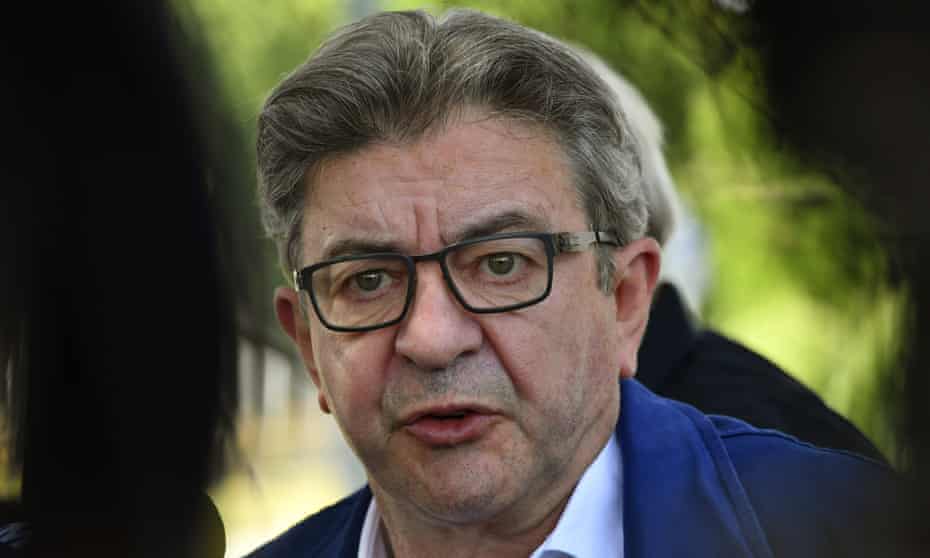
France’s veteran leftwing agitator, Jean-Luc Mélenchon, is preparing once again to sally forth against his enemies on the right after announcing that he is standing in the 2022 presidential elections, the third time he has mounted a challenge to lead the country.
The leader of France Unbowed (La France Insoumise, or LFI) promised last week he would put his name forward if 150,000 French citizens signed a petition supporting him. Within days, he had comfortably hit his target, and the signatures are still pouring in.
With 18 months to go until the next presidential election, polls suggest it is likely to be a repeat of the last one in 2017; a run-off between the current centrist leader, President Emmanuel Macron, and the far right’s Marine Le Pen.
Mélenchon is aiming to disrupt it. “I have said that I do not wish to see this country once again elect a majority based being against something … voting for Monsieur Macron against Madame Le Pen. It’s time that the French are offered a real choice of something they want,” he says.
Mélenchon, who will be 71 in 2022 and admits that every time he pops up in an election someone says, “You again?”, said his petition was a way of getting talked about.
Marianne magazine pointed out the petition was hardly a barometer of popular support, claiming to have signed it three times under false names including Maximilien Robespierre, which prompted LFI to respond angrily that the list would be independently and legally verified.
There is just one problem. How does a self-confessed political rabble-rouser, who admits his modus operandi is to ramp up the rhetoric, find the right tone in the time of the coronavirus crisis?
“The Covid-19 situation makes our job very difficult because we are in opposition and we do oppose the way the health crisis has been handled, but we cannot be the ones organising more disorganisation. We cannot be pushing people to disobey and create chaos. We just can’t do that,” Mélenchon told the Observer.
“This has led us, the Insoumises, to change our tactics. We have moved on from the period of sound and fury, where it’s a question of channeling the collective anger that is the expression of anti-capitalism, stirring it up, amplifying it and giving voice to it.
“Societies in a state of distress have a tendency to close ranks, to unite in mutual aid. So now we are saying first, what can we do to get out of this? Secondly, why are we not doing this, and thirdly who is to blame?
“I’m not saying this excludes taking a conflictual position, but that is not our main aim. We are not engaging in head-on clashes.”
In 2012, his first presidential campaign, Mélenchon polled 11.1% of the vote – fourth behind the then centre-right president Nicolas Sarkozy and his successor, Socialist François Hollande, and Le Pen.
In 2017, he polled 19.6% but came fourth once again. Macron went on to win, but with a large anti-Le Pen vote.
Mélenchon said it was wrong to assume that people had “stopped thinking” during the health crisis. Covid-19 was already “changing mentalities”, he said.
“Whenever I said we had to nationalise something, it made everyone afraid. Now people are saying we cannot let certain businesses close, we have to nationalise them. When I spoke of requisitioning the textile industry to make masks, did anyone say the Red Army was behind Mélenchon?
“There’s no revolution in the world that has happened for an ideological reason – they have all happened for practical reasons, without exception, including the revolution of 1789, including the Russian Revolution.”
Mélenchon said the party was in the process of dusting off its 2017 programme, updating it and seeking new ideas from supporters.
If elected president, he said recently, he would end the fifth republic introduced by Charles de Gaulle in 1958, draw up a new constitution for a sixth republic, and bring key people together and tell them “to sort out poverty and homelessness. I’m sure someone knows how to do it.”
Mélenchon, who has been described as autocratic, authoritative, passionate and charismatic, is presenting a more mellow, jocular face. Tomorrow it will be different, he admits. “With the health crisis, it’s more Mélenchon the anthropologist and sociologist who is responding to you, as opposed to the political man. Afterwards … well [political] conflict is never far away.”
As 2022 begins, there’s a new year resolution we’d like you to consider. We’d like to invite you to join more than 1.5 million people in 180 countries who have taken the step to support us financially – keeping us open to all, and fiercely independent.
In 2021, this support sustained investigative work into offshore wealth, spyware, sexual harassment, labour abuse, environmental plunder, crony coronavirus contracts, and Big Tech. It enabled diligent, fact-checked, authoritative journalism to thrive in an era of falsehood, sensation, hype and breathtaking misinformation and misconception.
In 2022, we’ll be no less active, with a cluster of elections (France, Brazil, the US to say the least), economic pinch points, the next phase of the pandemic, the gathering climate emergency and the first ‘winter World Cup’ to keep us busy.
With no shareholders or billionaire owner, we can set our own agenda and provide trustworthy journalism that’s free from commercial and political influence, offering a counterweight to the spread of misinformation. When it’s never mattered more, we can investigate and challenge without fear or favour.
Unlike many others, Guardian journalism is available for everyone to read, regardless of what they can afford to pay. We do this because we believe in information equality. While others commoditise information, we seek to democratise it. Greater numbers of people can keep track of global events, understand their impact, and become inspired to take meaningful action.
If there were ever a time to join us, it is now. Every contribution, however big or small, powers our journalism and sustains our future.
Support the Guardian from as little as £1 – it only takes a minute. If you can, please consider supporting us with a regular amount each month. Thank you.











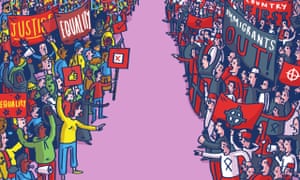
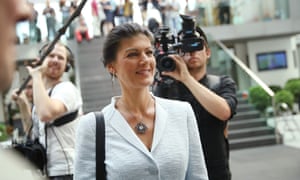

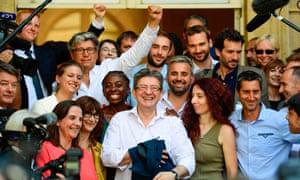
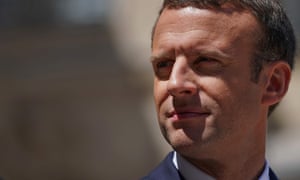






No comments:
Post a Comment